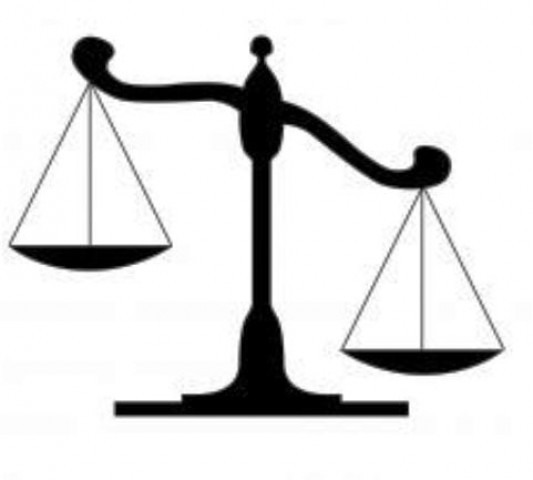Analysis: Putting to rest the past, and the present
The Constitution states than an Election Cell must not be created in support of any party.

Let’s start with the non-obvious. The Supreme Court of Pakistan’s short order in the 16-year-old ISI case has – or should – put paid to conspiracy theories that next year’s elections will be delayed and the Pakistan Army is prepping to install a technocratic, long-term interim government in collusion with the SC, a Bangladesh model of sorts.
RIP that, thank you. Just like the President of Pakistan and Chiefs of the Army and the ISI cannot act in any manner prejudicial to the “will of the people of Pakistan”, neither can the SC, either itself or in tandem with the military.
Within the immediate context one would describe this as a positive development.
Then there is the president and his office. The court says, “A President of Pakistan... being head of the State represents the unity of the Republic under Article 41 of the Constitution. And as per the oath of his office in all circumstances, he will do right to all manner of people, according to law, without fear or favour, affection or ill-will. Thus, holder of office of President of Pakistan, violates the Constitution, if he fails to treat all manner of people equally and without favouring any set, according to law, and as such, creates/provides an occasion which may lead to an action against him under the Constitution and the Law.” (NB: order is reproduced verbatim.)
The paragraph is significant in the current context when read in conjunction with the court’s observation that “The President of Pakistan, Chief of Army Staff, DG ISI or their subordinates...are not supposed to create an Election Cell or to support a political party/ group of political parties, because if they do so, the citizens would fail to elect their representatives in an honest, fair and free process of election, and their actions would negate the constitutional mandate on the subject.”
From this general statement, arising out of an episode in 1990, the court proceeds to issue an order in the present: “Any Election Cell/Political Cell in Presidency or ISI or MI or within their formations shall be abolished immediately and any letter/notification to the extent of creating any such Cell/Department (by any name whatsoever, explained herein, shall stand cancelled forthwith).”
The Lahore High Court is hearing a petition challenging President Asif Ali Zardari’s two offices. The LHC has not been very aggressive in taking up the issue. It will be interesting to see if the LHC reads this new judgment as a message to get on with deciding the two offices case.
If that happens, we might end up seeing an attempt to get Mr Zardari to pay for Mr Khan’s as well as his own “partisan political” actions! There are too many press reports detailing political meetings at the Presidency and President Zardari’s speeches at PPP rallies for anyone to try and make the point about the Presidency being nonpartisan.
Now to the obvious: it is a good judgement. Some say it could have been more forthright. That is a matter of where one stands and how strongly one feels about the excesses of the army and its intelligence agencies. The short order goes beyond adjudging mere financial misdemeanour to establishing the principle of the will of the people as supreme. In the broader context of the civil-military imbalance that has informed both the domestic politics of this country and its foreign and security policies, it is always good to establish the principle of civilian supremacy flowing from the will of the people and its expression. In actual practice, it can take more than just expressing this sentiment because military putsches, when they come, exist outside the law and the constitution.
The famous Asma Jilani judgment of 1973, for example, has been followed by not one but two coups.
It should also be evident that it was easier for the SC to decide the case yesterday (Oct 19) than back in 1996, when the case was filed. For example, former army chief Aslam Beg cannot strong-arm the SC today as he could and did Mr Justice Afzal Zulla’s court. Yes, much has changed, and that’s all to the good. But much more needs to change structurally for Pakistan to be secure both from the military’s adventurism and civilian incompetence.
Who received the dough?
According to the affidavit submitted by Lt-Gen Durrani, the following sums were given to the politicians:
Mir Afzal Khan (Chief Minister NWFP 1990-93) Rs10 million
Lt-Gen Rafaqat (for distribution among journalists) Rs5.6 million
Jamaat-e-Islami Rs5 million
Ghulam Mustafa Jatoi Rs5 million
Jam Sadiq Rs5 million
Zafarullah Jamali Rs4 million
Nawaz Sharif Rs3.5 million
Former PM Muhammad Khan Junejo Rs2.5 million
Pir Pagara Rs2 million
Humayun Marri (Bugti’s son-in-law) Rs1.5 million
Nader Mengal Rs1 million
Kakar (name unclear in affidavit) Rs1 million
Abida Hussain Rs1 million
Jam Yousuf Rs0.75 million
Altaf Hussain Qureshi (journalist) Rs0.5 million
K Baloch (name unclear in affidavit) Rs0.5 million
Hasil Bizenjo Rs0.5 million
Mustafa Sadiq Rs0.5 million
Maulana Salahuddin Rs0.3 million
Several smaller groups received around Rs5.4 million
Others (reportedly including senior SC
lawyer Abdul Hafeez Pirzada) received Rs3.339 million
Published in The Express Tribune, October 20th, 2012.


















COMMENTS
Comments are moderated and generally will be posted if they are on-topic and not abusive.
For more information, please see our Comments FAQ